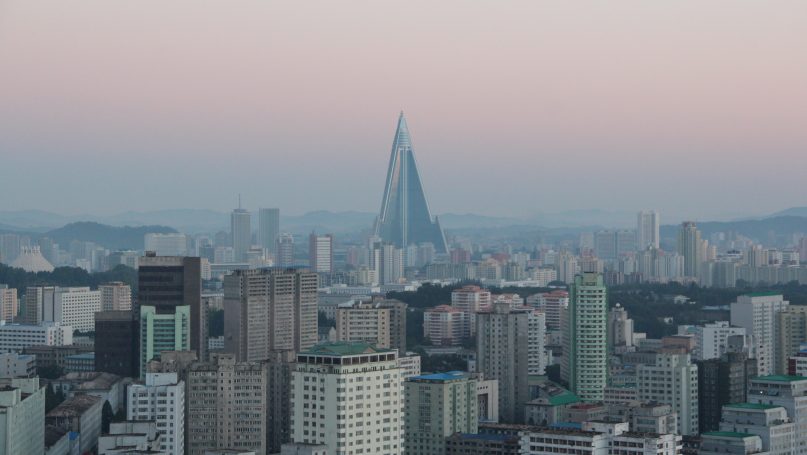
Following the rapid rapprochement between the two Koreas and upcoming summit talks between Kim and Trump, Japan has voiced concerns on being left out in the reconciliation process. In fact, during a closed-circuit call with the South Korean president in March 16th, Abe has even revealed that Japan wishes to hold a summit meeting with North Korea. Such proactiveness, however, is not new to Japan.
Japan had actually hitherto held normalization talks with North Korea 13 times, from January 30th 1991 in Pyeongyang to February 8th, 2006 in Beijing. The first 8 rounds of talks were made merely within 2 years from 1991 to 1992, instigated by the détente atmosphere in the Northeast Asian region and the subsequent fall of the Soviet Union in December 1991. Yet the negotiations ended in a rupture as the two sides couldn’t reach agreements on practically all issues such as how to interpret the Japanese occupational period (whether it was legal or illegal) or how to define the developmental loans which Japan were to provide (as indemnification or as claims), inspection on suspected nuclear research center sites, and so on, only to be aggravated by the abduction issue that surfaced as a another topic of discussion during the talks.
Another round of talks came in the 2000s when the leftist party of South Korea was in office, but the two sides again could not find any agreement points, and the talks did not see any progress from where they left off previously. Nevertheless, despite the rather staggering progress in normalization, talks which did not specifically involve such disputed topics continued, and reached their peak during the Japanese prime minister Goizumi’s visit to North Korea and the following “Pyeongyang Declaration” (Pyongyang Seoneon, Pyonyan Sengen) in 2002. Even such apparent reconciliation, however, was proven futile as both sides consequently did not choose to concede to each other’s stance.
Revisiting Japan’s normalization negotiations with North Korea now deserves spotlight, as Japan was historically drawn out to the negotiation table by external factors. In the 90s Japan attempted normalization due to the détente atmosphere in the region and in the early 2000s, by thawing tensions in the peninsula followed by efforts made by the leftist party of South Korea. Then, if talks between North/South Korea and U.S./North is to show much progress, or even if it doesn’t, Japan would be highly likely to take preemptive actions to not be left out in the rapprochement wave like it did in the “Pyeongyang Declaration”.
Nevertheless, it will still be difficult for the two parties to find agreement points in the talks to come. Kim Jeong Un had recently mentioned when he met the special emissaries from South Korea in March 6th that he is willing to surrender nuclear capabilities if the survival of his regime can be guaranteed. If North Korea were to agree to a total abolition of nuclear capabilities, normalizing relations with the U.S. and many other western states would not be a big challenge. Doing the same with Japan, however, will be a different story. As evidently shown in the previous talks between the two countries, talks on nuclear capabilities were only one of the many disagreed issues. Removing a single hurdle would not immediately nullify many other hurdles present. Yet the hurdles may indeed be removed if North Korea were to ultimately surrender its nuclear capabilities and actively normalize diplomatic relations with other western countries and South Korea, inducing Japan to take a more submissive stance to not fall behind the global trend of reconciliation.
Unlike South Korea, which desperately needed aid from Japan to develop its economy when it normalized its relations in 1965, North Korea has many other alternatives. It has its now developed neighbors, China, and South Korea, and possibly even the United States. When North Korea starts to normalize relations with others in earnest, Japan would be brought to the negotiation table and would have to concede many of their previous stances. In order to avoid such situations, Japan is and had been taking preemptive actions to normalize its relations with North Korea before other states, so that negotiations may proceed on equal grounds. In fact, Japan is actively communicating with North Korea through multiple diplomatic channels other than the previously mentioned call with the South Korean president, such as through Mongolia, which has an independent communication channel with North Korea.
Japan had started its rounds of normalization talks every time tensions appeared to be thawing in the peninsula. Such proactiveness is likely to be seen again, as it can be observed from Japan’s insistence to hold a summit meeting with North Korea. If the U.S. – North Korean summit talks reveal historic results and many countries start to hold normalization talks North Korea, it may be too late for Japan to hold talks on equal terms considering the many unresolved issues at hand. Therefore, if North Korea agrees to ultimately surrender all nuclear capabilities, it may indeed strike a much better deal with Japan than South Korea did in 1965.
Further Reading on E-International Relations
- A Unified Korea: Good for All (Except Japan)
- Opinion – Japan-South Korea Relations: Breaking the Cycle?
- Opinion – Toward a Japan-South Korea Alliance Less Reliant on the US
- How the American Public Views Nuclear North Korea
- Opinion – Extending South Korea and Japan’s Joint Development Zone Agreement
- The Danger of Passive Containment and Ignoring North Korea